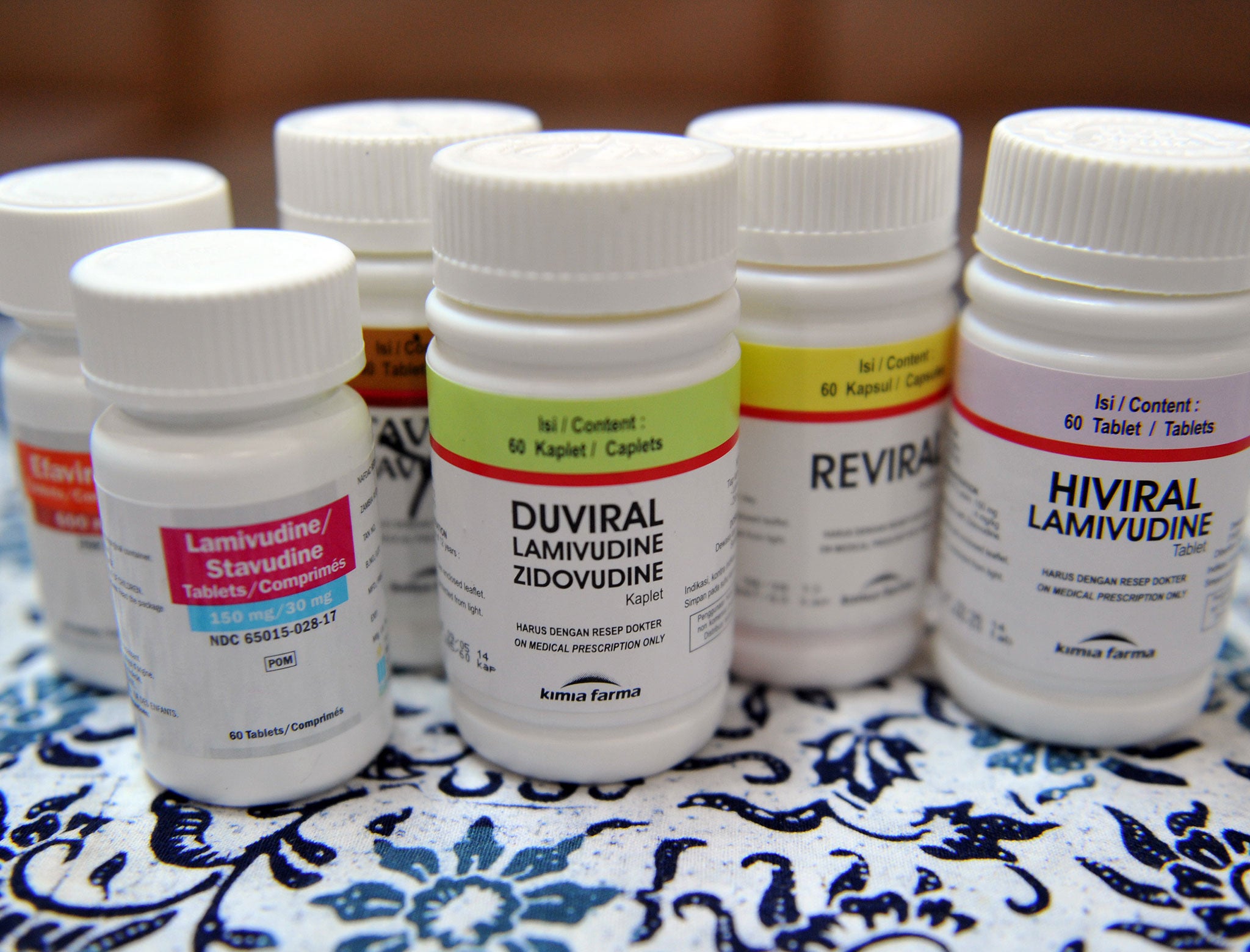In 2014, what will it take to end AIDS?
Medicines are still prohibitively expensive in many developing countries. We need change now

Your support helps us to tell the story
From reproductive rights to climate change to Big Tech, The Independent is on the ground when the story is developing. Whether it's investigating the financials of Elon Musk's pro-Trump PAC or producing our latest documentary, 'The A Word', which shines a light on the American women fighting for reproductive rights, we know how important it is to parse out the facts from the messaging.
At such a critical moment in US history, we need reporters on the ground. Your donation allows us to keep sending journalists to speak to both sides of the story.
The Independent is trusted by Americans across the entire political spectrum. And unlike many other quality news outlets, we choose not to lock Americans out of our reporting and analysis with paywalls. We believe quality journalism should be available to everyone, paid for by those who can afford it.
Your support makes all the difference.If you’ve been to the cinema recently you’ll probably have noticed posters for Dallas Buyers Club. Maybe you’ve even seen the film or followed the awards buzz. The film explores access to HIV treatment and is set nearly 30 years ago, before the days when people dared to talk about the end of AIDS. Unfortunately, even now, so many years later statements like the end of AIDS need to be followed by a large question mark, especially if you are one of the 16 million people living with HIV who need treatment but cannot access it. For them, and us, the question isn’t whether we can end AIDS, but we will be allowed to do so?
This week heads of state, celebrities, activists and development experts gather in London for a meeting of the UNAIDS and Lancet Joint Commission. As the Millennium Development Goals deadline draws near and the international community works to define a new development agenda beyond 2015, the Commission will be an influential voice in how the world addresses HIV and AIDS.
The commissioners won’t need to watch Oscar nominated films to understand the devastating impacts of HIV. Since the start of the epidemic, 36 million people have died of AIDS-related illnesses. 1.6 million of those deaths were in 2012 alone. HIV is both a symptom and cause of poverty and the leading cause of death among women of reproductive age.
As the network of UK organisations working on HIV and AIDS, STOPAIDS is urging the Commission to support a health goal which enables healthy lives at all ages with a clear and ambitious target for HIV and AIDS. The goal must ensure that stigma, discrimination and gender inequality are tackled and that all sections of society have access to treatment. It is not simply coverage of health services but the quality of services and the ability of people to access those services that counts and so, among other things, those who may be criminalised such as drug users, men who have sex with men, or sex workers must be protected. As the recent attempts by back benchers to target HIV positive immigrants show, these issues are not simply something for governments in developing countries to deal with either; stigma and discrimination must be challenged wherever they are found.
The Commission also has an opportunity to set our sights on what will make healthcare provision on this scale sustainable. It is clear that much progress has been made in the response to HIV and AIDS. Around 10 million people now have access to treatment and HIV is no longer the death sentence it once was. However, with 35 million people now living with HIV, access to medicines needs to be given higher priority if the AIDS response is to be sustained. The scale up of the AIDS response has only been possible with the adoption of generic drug production which drastically reduced the price of treatment. However, prices of 2nd and 3rd line medicines are still prohibitively expensive in many developing countries, and as more and more people need to graduate to new treatment regimens the resources for the response will become increasingly stretched unless we see price reductions – particularly in middle-income countries. The UK Government recently pledged £1billion to the Global Fund to fight TB, AIDS and Malaria and this should be backed up with a commitment to ensure that trade negotiations don’t interfere with the production of generic drugs and drive the costs of healthcare beyond the reach of developing countries.
In a few weeks the results will be in and we’ll know whether Matthew McConaughey’s performance in Dallas Buyers Club is enough to earn him a solid gold statue. It’ll be too early to tell whether the Commission and negotiators from UN member states deserve any awards but they can be assured that civil society and the world will be watching and expecting.
Matt Grady is Policy Adviser for STOPAIDS.
Join our commenting forum
Join thought-provoking conversations, follow other Independent readers and see their replies
Comments